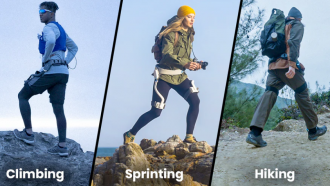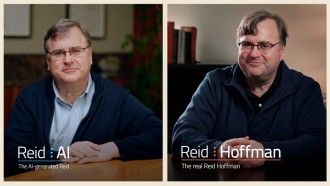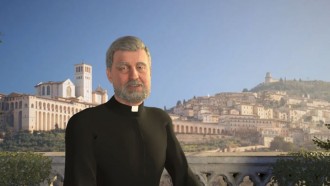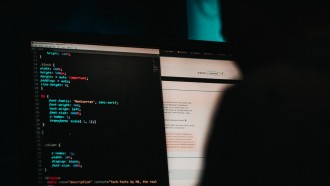On Tuesday, June 4, French President Emmanuel Macron decided to pay a visit to a police station in Paris to thank deputies for their continuous hard work amidst the ongoing riots concerning the tragic shooting of a 17-year-old teenager.
Little did the President know that his words about the current situation would have the opposite effect than he had in mind.
Police officers are now more divided than ever, with a majority of their numbers losing faith in Macron following his controversial statements.
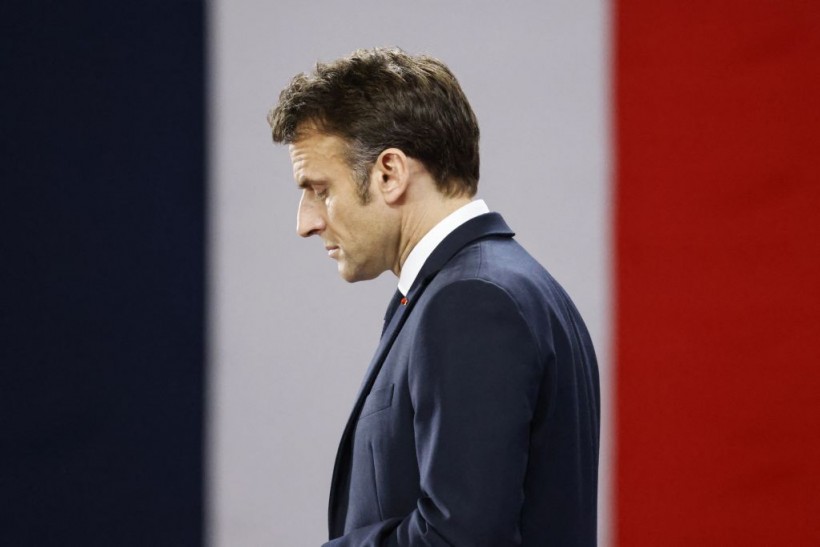
French President Emmanuel Macron meets students at Sun Yat-sen University in Guangzhou on April 7, 2023.
Macron's Questionable Comments
Officers were reasonably upset when French President Emmanuel Macron described the killing of Nahel Merzouk, an Algerian 17-year-old, as "inexplicable and inexcusable" in response to a viral video. Grégory Joron, leader of Force Ouvrière, the second-largest labor organization in France's police, claims that the officers have lost trust in the president.
It wasn't right for Macron to comment on the tragedy since France's police are a strong institution and sought to diffuse the enmity. The two major unions of police have taken increasingly radical stances, calling for more aggressive measures to quell riots of "hordes of savages" and "pests."
Read Also: YouTube Recommends Violent Gun Videos to Child Accounts- Study Claims
Drastic Solutions
Similar to far-right practices, the police are currently engaged in combat because of the ongoing conflict. Due to their involvement in responding to terrorist acts and societal unrest, including the anti-government gilets jaunes protest movement during Macron's presidency, critics of law enforcement have long considered it taboo.
The French government has boosted police authority and is tracking mosques that it believes to be home to radical Islamists using drones and surveillance cameras. The president has backed the police while left-leaning politicians, activist groups, and organizations have criticized the methods and ethos of French law enforcement.
Criticism From the UN and Other Groups
In the midst of denouncing the crackdown and the recommendations of a UN official, French police deployed tear gas, stun grenades, and LBD guns to disperse rallies over Macron's pension reform. These strategies are criticized as being oppressive.
Following the passing of Merzouk, police are under fire for their handling of racism and prejudice in law enforcement. Ravina Shamdasani, a spokeswoman for the UN Human Rights Office, calls for action. Stating that "This is a moment for the country to seriously address the deep issues of racism and discrimination in law enforcement,"
Unions were confused by a 2017 law that broadened the scope of the use of lethal force by traffic police. No strategy has yet been implemented in response to the left-wing Nupes alliance's request for its urgent repeal, which accuses police of using it as a "license to kill."
Macron's administration has characterized the teenager's assassination as an isolated occurrence with no racial overtones. The officer involved is being held in pre-trial custody after being accused of committing a voluntary killing. Police discriminate against Black and Arab teenagers in low-income banlieues, with a 2017 study finding that minority men are 20 times more likely to have their identities checked.
Blaming Video Games and the Media
Due to the youth of the majority of the rioters, Macron highlighted that parents have a duty to keep them at home. He urged social media providers to take steps to stop the spread of delicate information about the uprising. He listed well-known apps like Snapchat and TikTok as places where the commotion is organized, but he also noted how these apps are used to plan violent protests. Macron underlined that these platforms may be a type of imitation and might cause some young people to lose touch with reality.
In order to draw attention to important concerns like police brutality, housing, and economic inequality, and the inadequacy of "colorblind" policies, France's President Macron attacked young demonstrators for living in the streets because of video games. Video games have been blamed constantly for violence. However, there isn't any solid proof connecting violent video game content to actual violent mannerisms.
This pattern of blaming video games seems to be shared by a huge number of groups and politicians, mainly Republicans. Some other examples are Trump's and Kevin McCarthy's takes on mass shootings.
Trump underlined the need to end society's normalization of violence, particularly its acceptance of violent video games. He emphasized the urgency of taking quick action and reducing the culture that glorifies violence. This follows recent mass shootings that left at least 31 dead in El Paso, Texas, and Dayton, Ohio. Conservative leaders like Kevin McCarthy and Texas Lt. Governor Dan Patrick have also stated that video games may be to blame for real-world violence.
McCarthy emphasized the issue of video games as a problem for future generations and others. The industry has been blamed for sparking some of the country's deadliest violence. He attributed the rise in shootings to the video game industry, teaching young people to kill.
He acknowledged that video games, in general, play a role in mass shootings, as they dehumanize individuals and encourage them to shoot themselves and others.
Related Article: Do Realistic Graphics Promote Video Game Violence?


